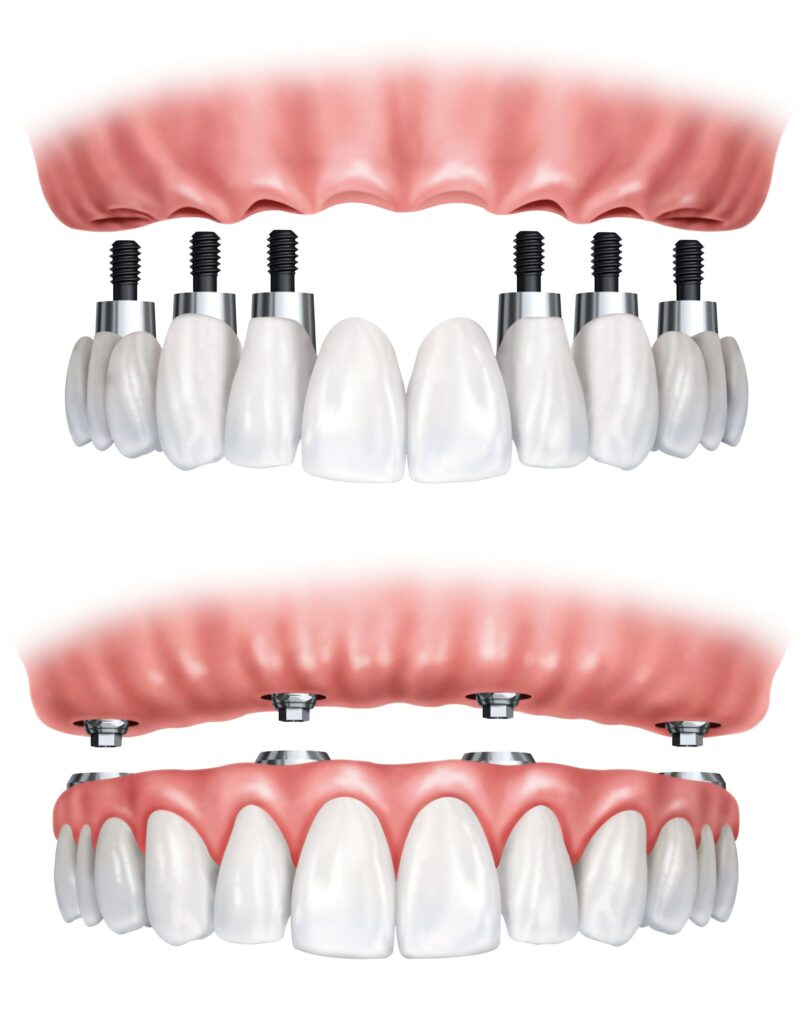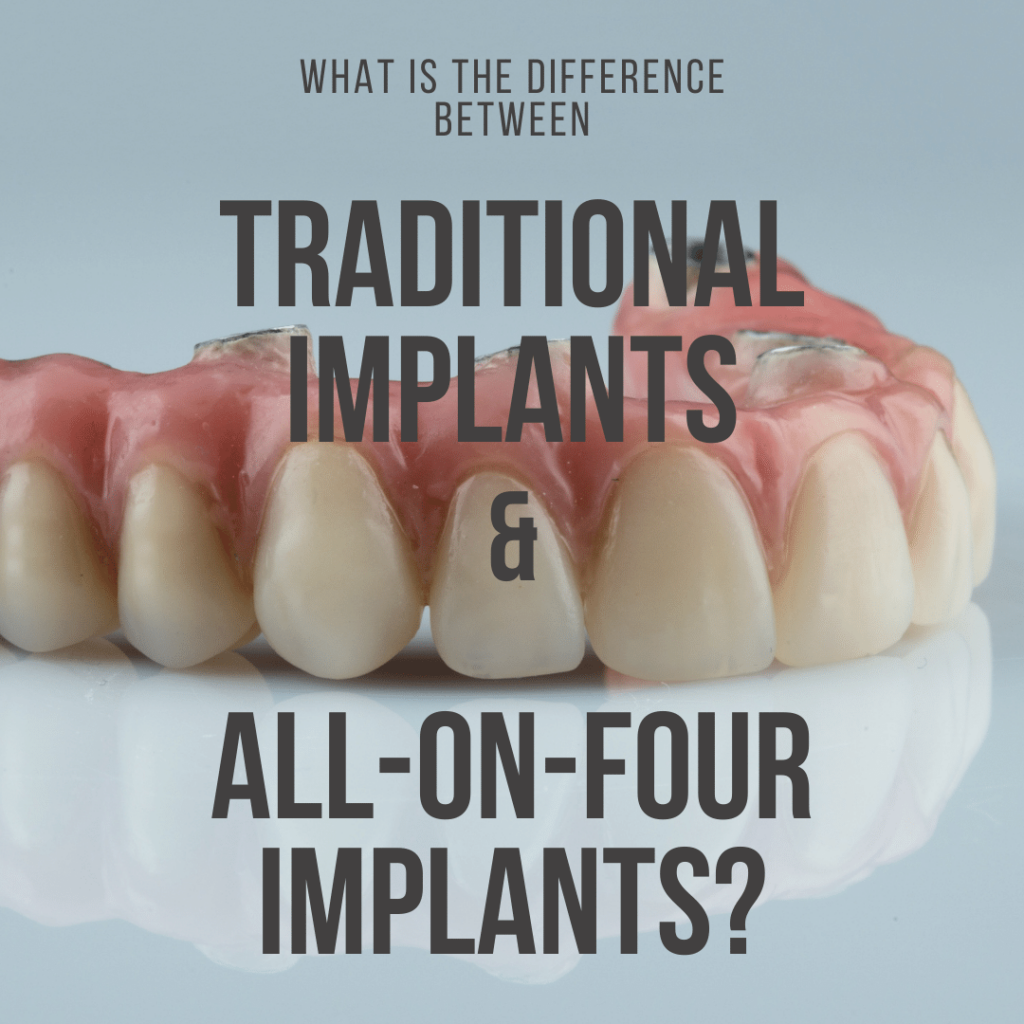Dental implants are a popular choice for replacing missing teeth. There are many types of dental implants available on the market today. Two of the most popular are traditional implants and all-on-four implants. But what is the difference between these two types of implants? In this blog post, we will define traditional dental implants and all-on-four dental implants, and explain the similarities and differences between them.
Traditional dental implants are titanium screws that are surgically placed into the jawbone to act as artificial tooth roots. Once the implants have fused with the jawbone, a small connector piece, called an abutment, is placed on top of the implant. The abutment is then used to support a dental crown, bridge or denture. Traditional dental implants are a great option for patients who are missing one or more teeth.
All-on-four dental implants are also titanium screws that are surgically placed into the jawbone to act as artificial tooth roots. However, all-on-four implants differ from traditional implants in a few ways. These include:

The Number of Screws
First, all-on-four implants use four screws to support a denture. Traditional implants can also be used to support a denture, however they usually require a minimum of six implants per arch to properly stabilize the denture.
Specialized Technique
Second, all-on-four implants are placed in the jawbone using a different technique. Instead of being placed straight into the jawbone, all-on-four implants are placed at an angle so that they make the most amount of contact with healthy bone. This technique allows for reduced need for bone augmentation, which can save time and money.
Shorter Healing Time
Third, all-on-four implants have a shorter healing time than traditional implants. This is partially due to the fact that less implants are needed to secure the denture. Additionally, the lack of bone augmentation procedures means that there will be less time spent healing from additional procedures.
Cost
And lastly, all-on-four implants tend to be less expensive than traditional implants. The lower cost can be attributed to the fact that less implants are needed to secure the denture. The total cost also tends to be lower since no bone augmentation procedures are needed. However, your exact cost will vary on a number of factors and should always be discussed prior to your procedure.
Now that we have defined traditional dental implants and all-on-four dental implants, and discussed the similarities and differences between them, you may be wondering how to choose between the two types of implants. The answer will depend on a number of factors, including:
- The Number of Implants Needed
- Your Budget
- Your Overall Health
In Conclusion
In this blog post, we have defined traditional dental implants and all-on-four dental implants, and discussed the similarities and differences between them. All-on-four implants are a newer type of implant that offers a few advantages over traditional implants. When deciding between the two types of implants, it is important to consider the number of implants needed, your budget, and your overall health.
If you have any questions about dental implants or are considering getting dental implants, be sure to consult with a qualified dentist in your area. They will be able to help you decide if dental implants are right for you.

Dr. Admar holds dual certificates — a Bachelor of Dental Surgery (BDS) in 2010 from India and a Doctor of Dental Surgery (DDS) in 2014 from Canada. He is now a full time practicing dentist in Kamloops where he provides a variety of services, including emergency dentistry. Dr. Admar spends hundreds of hours in continued dental education to stay up to date in cosmetic and implant dentistry and he has achieved several advanced qualifications.


